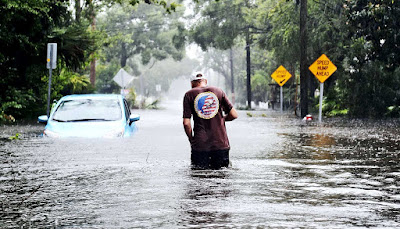CLIMATE POLITICS OUTWEIGH SCIENCE FOR COASTAL FLORIDIAN
National politics outshines scientific research in public mindsets about environment change and reduction plans amongst seaside location Florida residents probably to be affected, inning accordance with a brand-new book.Ayam Peru Ayam Aduan Taji Pisau
"Are these homeowners aware or worried about their risk? Do they support plans and laws designed to reduce the speed and degree of environment change that would certainly, in transform, slow water level rise?" are some questions coauthors metropolitan geographer Risa Hand and political researcher Toby Bolsen of Georgia Specify College ask in their new book, Environment Change and Sea Degree Rise in Southern Florida: The View of Seaside Residents (Springer 2020).
"WHEN SCIENCE INFORMATION IS POLITICIZED, WORKING TOWARDS COMMON SOLUTIONS BECOMES MUCH MORE DIFFICULT."
"Their answers are key to our understanding factors that will affect most likely changes in individual habits and public law," the writers write.
The writers surveyed nearly 1,000 residents on Southern Florida's eastern and west coasts using flooding area maps that revealed their neighborhoods undersea at high trend in the years to coming.
"We expected that showing residents a map of swamping to their city would certainly outcome in changing mindsets," says Hand. "It didn't occur. There was actually a decrease in those that think it's happening and will have an effect on their home worths."
Political party recognition and belief were one of the most important forecasters of their mindsets. Furthermore, residents that valued financial development over environmental management were much less worried and much less most likely to see the connection of environment change to rising seas. Female residents were more worried about the issue compared to men.
Some reduction initiatives were more popular compared to others. Those residing in locations susceptible to swamping typically sustained new regulations requiring greater set-backs from the coast and the building of flooding obstacles or sea wall surfaces. They were much less passionate about measures that would certainly increase their costs, such as enhancing fuel tax obligations to motivate power preservation.
"The interaction challenge remains very major," says Hand. "When scientific research information is politicized, functioning towards common solutions becomes a lot harder. Also providing the right type of information isn't having actually the impact we need it to have."
The need for individuals of Florida to approve the reality of environment change and work towards plan solutions is especially immediate," she thinks.
"Florida's seaside locations have been shaped by extremely complex negotiation patterns. Many of these neighborhoods have been developed with no focus on ecological hazards but a good deal of focus on realty profit. The outcomes along the coast are especially devastating in respect to environment change.



